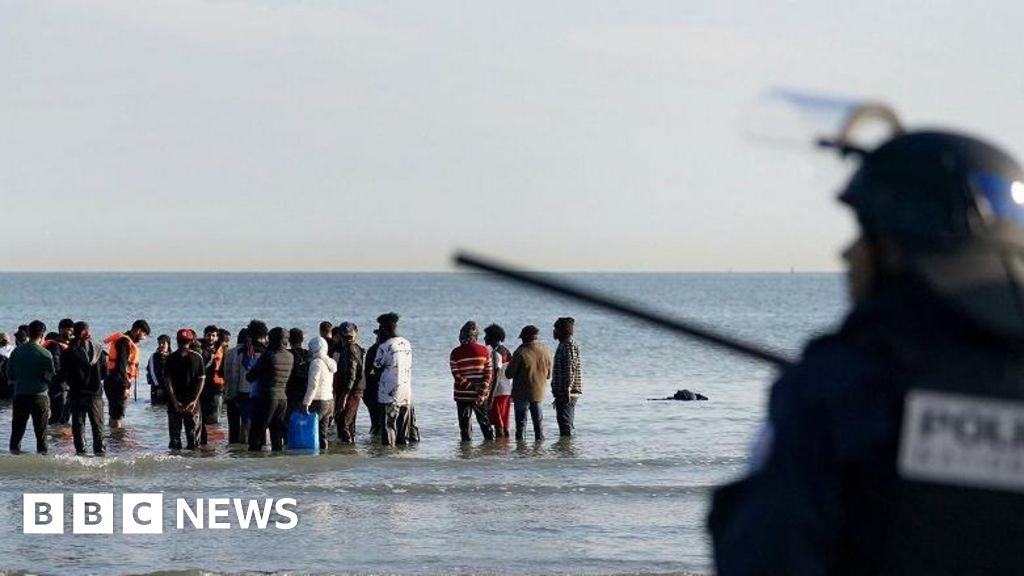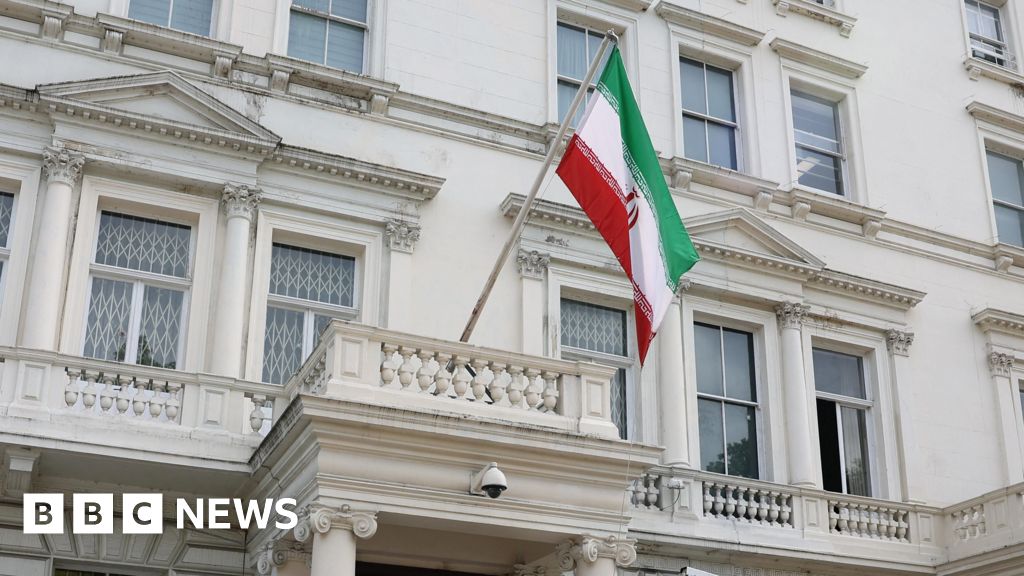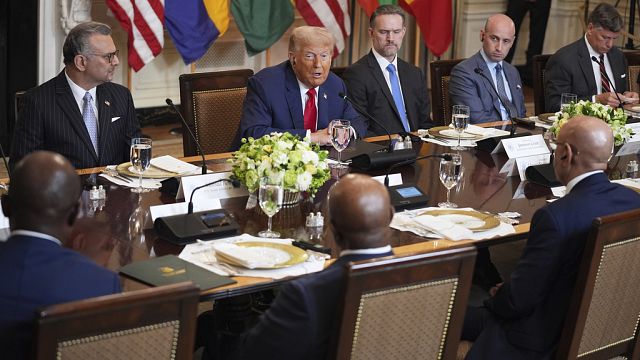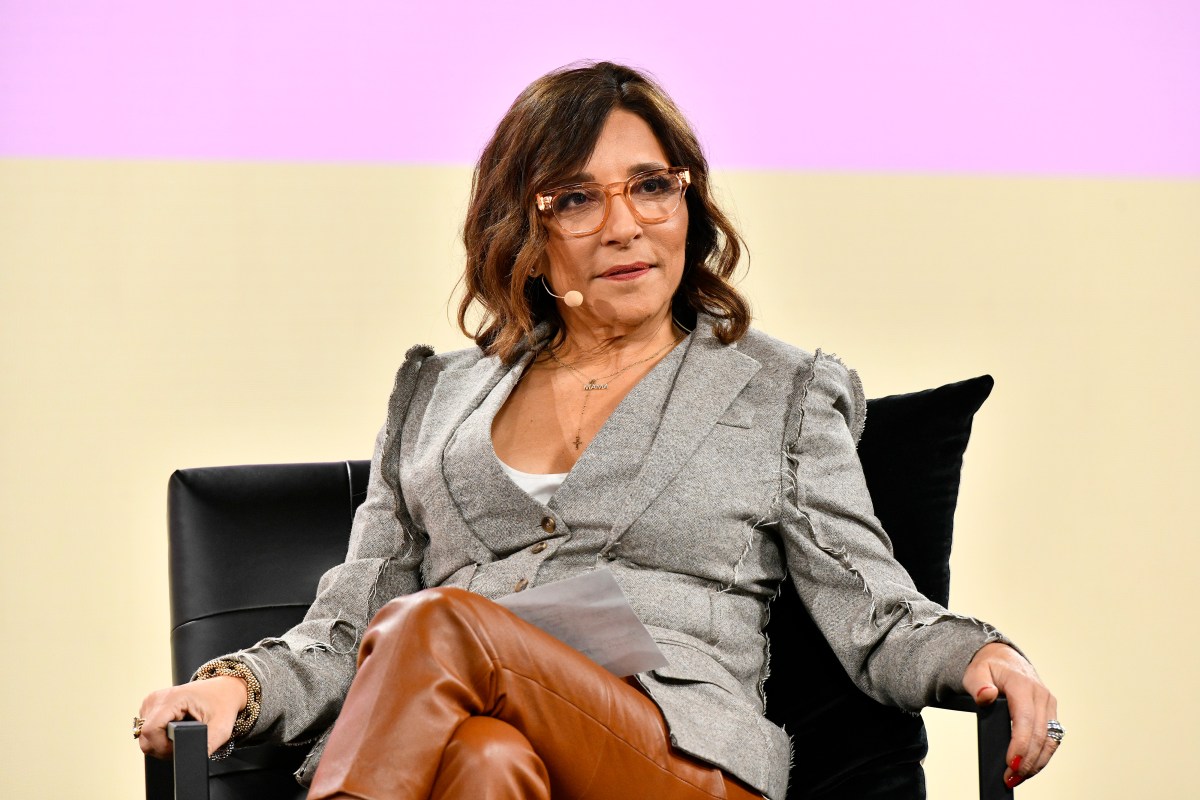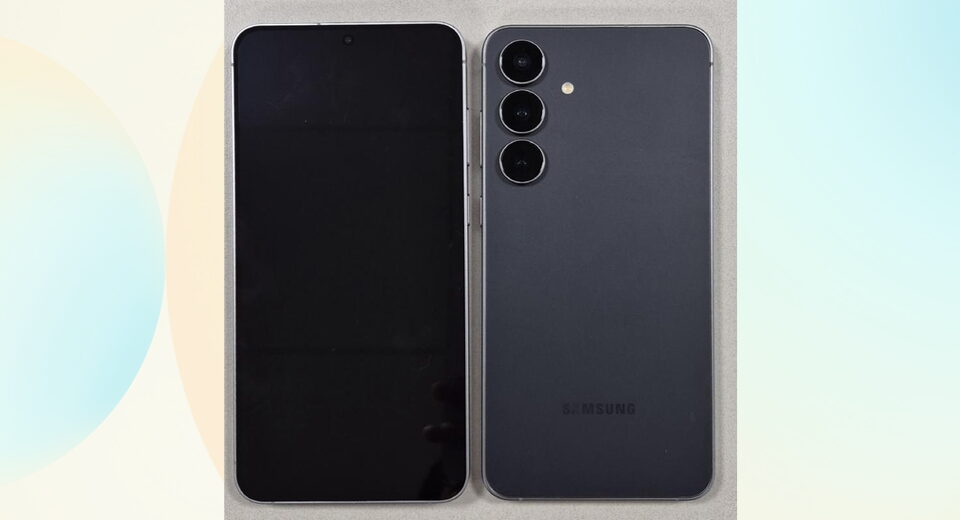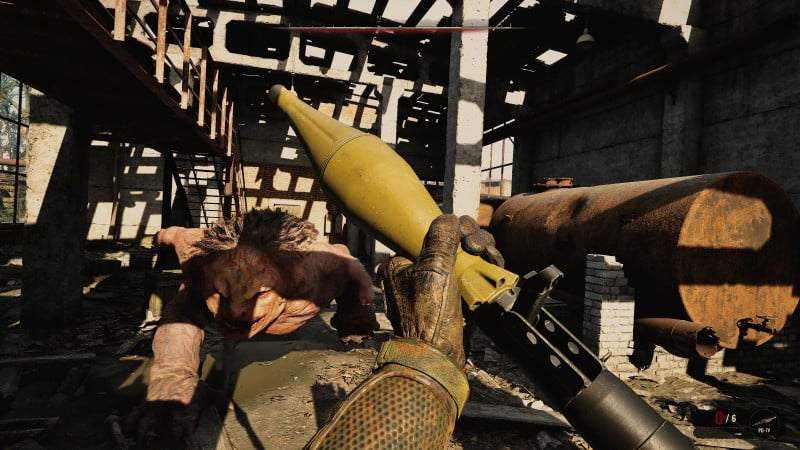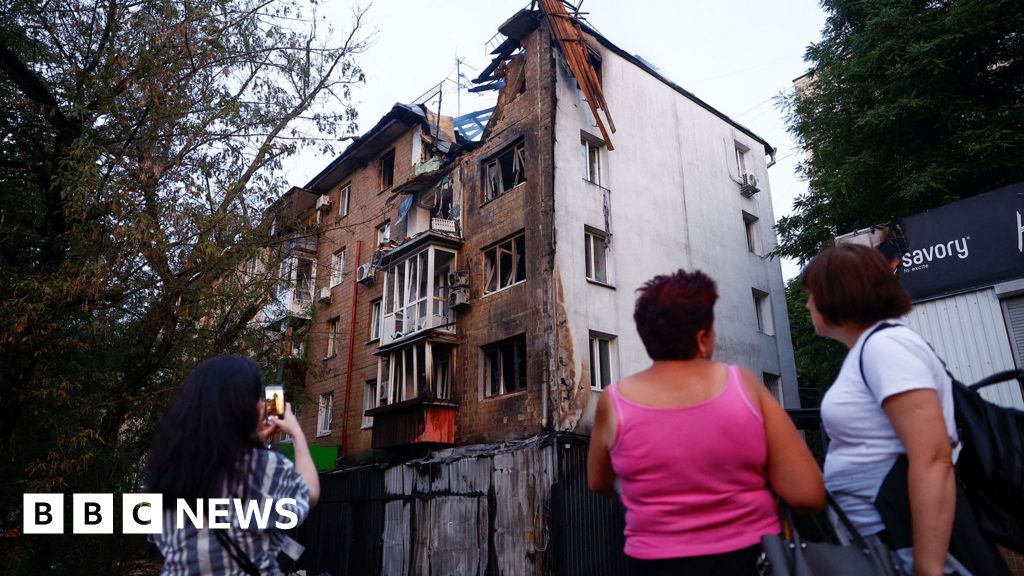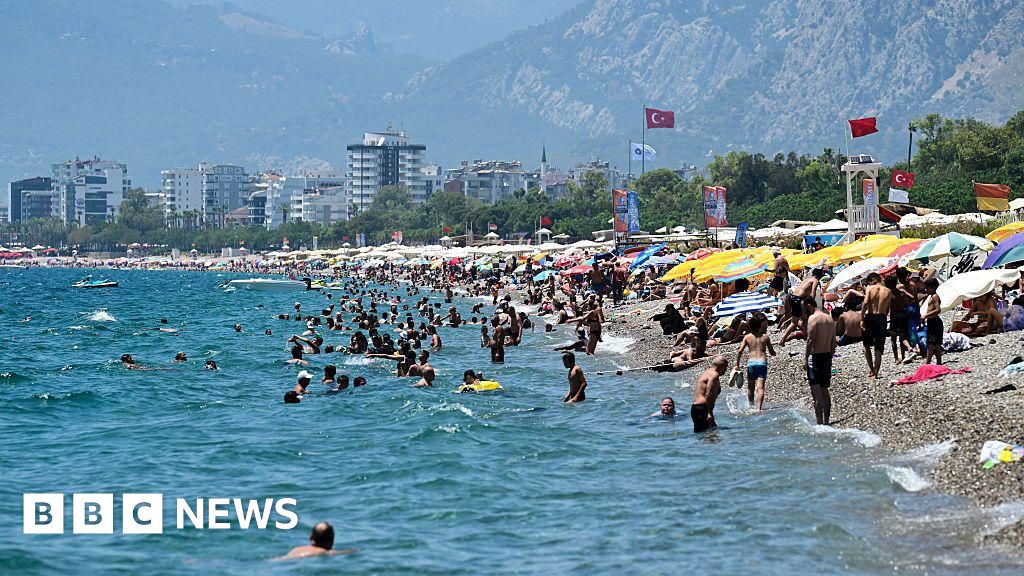Administration Takes Steps to Target 2 Officials Who Investigated Trump


The Trump administration appears to be targeting officials who oversaw the investigation into the 2016 Trump campaign’s connections to Russia, examining the actions of the former F.B.I. director James B. Comey and the former C.I.A. director John O. Brennan, according to people familiar with the situation.
John Ratcliffe, the C.I.A. director and a harsh critic of his Democratic-appointed predecessors, has made a criminal referral of Mr. Brennan to the F.B.I., accusing him of lying to Congress, officials said. The bureau is also scrutinizing Mr. Comey for his role in the Russia investigation, other officials said, although the exact basis for any inquiry remains unclear.
Even if it is unclear whether the moves will lead to charges, they are among the most significant indications that President Trump’s appointees intend to follow through on his campaign to exact retribution against his perceived enemies. That includes people leading the investigation into what he has repeatedly denounced as the “Russia hoax” nine years ago and officials involved in two failed federal prosecutions of Mr. Trump during the Biden years.
This all comes at a precarious moment for the appointed leadership of federal law enforcement agencies. Since Monday, Trump supporters on the far right have lashed out at Attorney General Pam Bondi and F.B.I. brass for closing the investigation into the death of the disgraced financier Jeffrey Epstein. Those same allies have called for aggressive investigations of Trump investigators.
C.I.A. and F.B.I. officials declined to comment. A Justice Department spokeswoman wrote in a statement that it did not comment on “ongoing investigations.”
White House officials, who have often flouted safeguards intended to shield federal law enforcement from presidential interference, cheered on the moves after Fox News Digital reported on the Brennan referral and actions involving Mr. Comey late Tuesday.
“I am glad to see that the Department of Justice is opening up this investigation,” the White House press secretary, Karoline Leavitt, said during an interview on Fox.
“What we have seen is corruption at the highest levels against President Trump; the deep state threw everything at him,” she added, providing no evidence for her assertion.
Asked about news coverage of his perceived rivals, Mr. Trump said on Wednesday that he knew “nothing about it other than what I read today,” but that “they’re very dishonest people.”
Whether the scrutiny will lead anywhere is unclear. Still, Ed Martin, the Trump ally tapped to oversee a “weaponization” task force in the Justice Department, has suggested that simply naming and shaming Mr. Trump’s foes is an acceptable goal, even if there is insufficient evidence to secure a grand jury indictment.
Mr. Comey, whose public acknowledgments of the bureau’s investigations into Mr. Trump and Hillary Clinton in 2016 thrust the F.B.I. into the political arena, has long been in Mr. Trump’s cross hairs.
In 2018, the president told the White House counsel that he planned to order the Justice Department to prosecute Mr. Comey and Mrs. Clinton. The counsel, Donald F. McGahn II, rebuffed him, saying that he had no authority to do so. Mr. McGahn said that while he could request an investigation, that too could prompt accusations of abuse of power and drafted a memo warning that he could face a range of consequences, including impeachment.
In May, Mr. Trump criticized Mr. Comey after the former director posted a photograph of a formation of seashells arrayed to read “86 47” — which the president interpreted as an exhortation for “assassination.” Mr. Trump suggested that Ms. Bondi should look into the incident, which was already the subject of a Secret Service investigation.
Mr. Comey denied any nefarious motivation for the post and quickly deleted it.
Mr. Brennan, who endorsed Kamala Harris for president in 2024 and has suggested that Mr. Trump was unfit for office, did not immediately return calls for comment. But former intelligence officials disparaged the referral, saying that Mr. Brennan did nothing wrong and that the investigation was merely an effort to appease Mr. Trump’s political base.
Mr. Ratcliffe, a former Republican congressman for Texas, emerged as a fierce defender of the president during the 2019 impeachment, which was spurred by the Russia investigation. He worked for a Trump-adjacent nonprofit during Mr. Trump’s four years out of office and appeared at campaign events in 2024.
The Brennan referral stems from the C.I.A.’s recent review of its 2016 intelligence assessment on Russian interference in that year’s presidential election. While the new review did not undercut the findings of the earlier assessment, it was deeply critical of Mr. Brennan and his oversight of the analytic work.
The recent review criticized the agency’s top leadership, including Mr. Brennan, for rushing the Trump-Russia inquiry — but did not dispute the core conclusion that Russia favored Mr. Trump over Mrs. Clinton in the 2016 election. The review reflected Mr. Ratcliffe’s longtime criticism of his predecessor but also the discomfort some longtime analysts felt about Mr. Brennan’s unusual hands-on role in producing the assessment.
The review, which was declassified and released late last month, said that Mr. Brennan had pushed for the inclusion of the so-called Steele dossier, a collection of unverified allegations about Mr. Trump that was assembled by a former British intelligence officer.
The new review said that while C.I.A. analysts had raised concerns about the dossier, Mr. Brennan “appeared more swayed by the dossier’s general conformity with existing theories than by legitimate tradecraft concerns.” According to the review, Mr. Brennan “ultimately formalized his position in writing, stating that ‘my bottom line is that I believe that the information warrants inclusion in the report.’”
The C.I.A. offered little context for Mr. Brennan’s written remark. The new review does not say whether that comment was about whether to include the dossier in the annex or whether Mr. Brennan allowed it to influence the overall assessment, something he has repeatedly and strenuously denied.
In his memoir, and in testimony to Congress, Mr. Brennan said he supported C.I.A. analysts who opposed inclusion of the dossier in the intelligence assessment. The dossier was ultimately summarized in an annex to the document.
“The dossier did not inform any of the analysis or the judgments in the assessment itself,” Mr. Brennan wrote in his book “Undaunted.”
Mr. Brennan testified before the Senate Intelligence Committee in 2018 on his views of the dossier. It is not clear if investigators would examine that interview or other testimony Mr. Brennan has delivered to Congress.
It is also not even clear if the Justice Department has legal authority to pursue charges if the F.B.I. finds ample evidence to prosecute. Mr. Brennan’s testimony before the Senate is now seven years old, which appears to lie beyond the statute of limitations in such cases.
After the Russia inquiry ended in 2019, the attorney general at the time, William P. Barr, assigned a U.S. attorney, John H. Durham, to scrutinize the origins and early phases of the investigation, including the actions of intelligence officials. Mr. Durham went through C.I.A. files about Russia’s covert election interference operation and interviewed Mr. Brennan extensively, but did not charge Mr. Brennan or criticize him in his final report. In December 2020, Mr. Barr, based on Mr. Durham’s research, said there was no “sign of improper C.I.A. activity” and that “the C.I.A. stayed in its lane.”
Maggie Haberman contributed reporting from New York, and Devlin Barrett and Charlie Savage from Washington.
What's Your Reaction?
 Like
0
Like
0
 Dislike
0
Dislike
0
 Love
0
Love
0
 Funny
0
Funny
0
 Angry
0
Angry
0
 Sad
0
Sad
0
 Wow
0
Wow
0


